
1. Hechos.
KOKIDO LIMITED, titular de diversos registros de marca y modelos comunitarios relativos al diseño de unos cepillos de limpieza para piscinas, y KOKIDO SERVICES, S.L., distribuidor de los productos sobre los que se asientan los modelos anteriores, interpusieron una demanda frente a las compañías COAMER, S.L. y LEROY MERLIN ESPAÑA, S.L.U. al ver infringidos sus derechos de exclusiva con la comercialización y distribución de los productos “limpiafondos aluminio” y “limpiafondos automático nagore”.
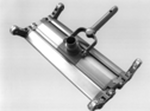
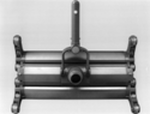
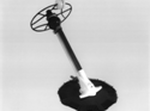
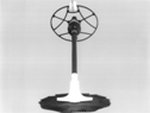
La demanda fue desestimada en primera instancia por el Juzgado de Marcas de la Unión Europea, Dibujos y Modelos Comunitarios al considerar que las acciones civiles habían prescrito por haber transcurrido más de 5 años desde que pudieron ejercitarse.
Las actoras se alzaron por vía de apelación contra la sentencia y se opusieron a la excepción de prescripción de las acciones de infracción. Los primeros requerimientos dirigidos a las demandadas fueron remitidas el 3 de octubre de 2008, mientras que la demanda se interpuso el 21 de marzo de 2014, de modo que la cuestión no era determinar si había transcurrido o no el plazo quinquenal -lo cual era evidente-, sino si se habían producido actos interruptivos de la prescripción de los previstos en el artículo 1.973 del Código Civil.
2. Pronunciamientos.
En primer lugar, las apelantes alegaron que con anterioridad al inicio del presente procedimiento judicial habían iniciado ante los Juzgados de lo Mercantil de Madrid dos procesos judiciales, con idéntico objeto, frente a COAMER, S.L. y LEROY MERLIN ESPAÑA, S.L.U. los días 17 de julio de 2009 y 15 de febrero de 2012, respectivamente.
Sin embargo, señala la sentencia que ambos procesos resultaron ser declarados nulos de pleno Derecho por falta de competencia objetiva de los Juzgados de lo Mercantil de Madrid para conocer de las demandas interpuestas al corresponder a los Juzgados de Marca Comunitaria de Alicante. De modo que ambos procedimientos ya no surtían el efecto interruptivo sobre el plazo de prescripción.
En segundo lugar, alegaban las apelantes que en 2009, es decir, casi un año después de que fueran remitidos los primeros requerimientos, se seguían comercializando los productos infractores en los establecimientos LEROY MERLIN de Portugal.
Pero el Tribunal rechaza esta argumentación por entender que el ofrecimiento en el mercado de esos productos no es un acto de infracción imputable a las actuales demandadas, ni siquiera a LEROY MERLIN ESPAÑA, S.L.U. porque ésta no vende productos en Portugal.
Por último, alegaban las apelantes que el 22 de diciembre de 2011 remitieron un nuevo burofax a LEROY MERLIN ESPAÑA, S.L.U. y que, por lo tanto, el plazo de prescripción se había visto en todo caso interrumpido.
Nuevamente, el Tribunal rechaza los argumentos de las actoras al considerar que el referido burofax no se aproximaba a lo que propiamente debía ser una reclamación extrajudicial. A este respecto, la sentencia señala tres motivos por los que el burofax carecía de la condición de reclamación judicial: i) en primer lugar, porque las apelantes habían permanecido durante más de tres años sin tomar ninguna medida frente a LEROY MERLIN ESPAÑA, S.L.U.; ii) en segundo lugar, porque el burofax es remitido una vez es conocida la insolvencia de COAMER, S.L.; y iii) en tercer lugar, porque el verdadero propósito del burofax no era “la conservación y protección de sus derechos infringidos”, tal y como sería de tratarse de una reclamación extrajudicial, sino más bien “iniciar relaciones comerciales a cambio de no iniciar una reclamación judicial”.
Por todo ello, el Tribunal rechaza el recurso de apelación y confirma la excepción de prescripción de las acciones civiles.
3. Comentario.
El artículo 1.973 del Código Civil establece que la prescripción de las acciones se interrumpe por el ejercicio de las mismas ante los Tribunales y por la reclamación extrajudicial. La norma en sí no especifica que el ejercicio de las acciones deba ser ante los Tribunales competentes, ni tampoco establece condiciones especiales para que una comunicación pueda adoptar la condición de reclamación extrajudicial. Parece más bien, que lo que pretende establecer la norma es la necesidad de que el interesado externalice de modo fehaciente la voluntad de hacer valer sus derechos ante un tercero, con independencia de si las acciones judiciales surten finalmente efectos o no, o de si la comunicación a un tercero tiene por finalidad prohibir una determinada conducta o simplemente iniciar una relación comercial tomando como base sus derechos registrales. Sirva en cualquier caso esta sentencia para hacer un llamamiento a la prudencia a la hora de agotar los plazos procesales.
(Fuente de la información: ANUARIO ELZABURU 2016, recopilatorio de comentarios de jurisprudencia europea en materia de Derecho de Propiedad Industrial e Intelectual que realiza Elzaburu).
ENGLISH VERSION
Interruption of the period of limitation for civil action concerning industrial property. Judgment of the European Union Trademark Court of 6 June 2016, Kokido (ECLI:ES:APA:2016:1939).
1. Background.
Kokido Limited, the holder of a number of EU trademarks and designs relating to brushes for cleaning swimming pools, and Kokido Services, S.L., the distributor of the products into which those designs are incorporated, brought proceedings against Coamer, S.L. and Leroy Merlin España, S.L.U. for infringement of their exclusive rights due to the marketing and distribution of the “limpiafondos aluminio” and “limpiafondos automático nagore” products.
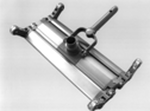
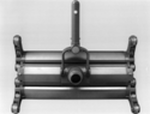
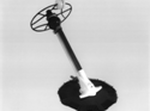
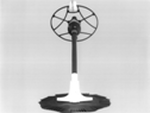
The complaint was dismissed at first instance by the EU trademark and design court on the grounds that civil actions had become statute-barred as over 5 years had elapsed since the time when the action could have been brought.
The plaintiffs lodged an appeal against the judgment, objecting to the plea that the infringement actions were statute-barred. The first cease and desist letters were sent to the defendants on 3 October 2008, whilst the complaint was filed on 21 March 2014. Therefore, the issue was not about determining whether the five-year period had elapsed –which was obvious-, but whether any of the acts that interrupt the period of limitation, laid down in Article 1973 of the Spanish Civil Code, had occurred.
2. Findings.
First of all, the appellants argued that prior to the commencement of the proceedings in question they had filed two suits, with the same subject matter, against COAMER, S.L. and LEROY MELIN ESPAÑA S.L.U. in the Madrid mercantile courts on 17 July 2009 and 15 February 2012, respectively.
Nevertheless, the judgment indicates that both suits were declared null and void due to the fact that the EU trademark courts in Alicante, not the Madrid mercantile courts, had jurisdiction to hear the complaints that had been filed. Those suits did not, therefore, interrupt the period of limitation.
Secondly, the appellants argued that in 2009, i.e., almost one year after the first cease and desist letters were sent, the infringing products were still being sold in LEROY MERLIN establishments in Portugal.
However, the court rejected that argument on the grounds that the offering of those products in the marketplace was not an act of infringement that could be attributed to the current defendants or even LEROY MERLIN ESPAÑA, S.L.U., since that company did not sell products in Portugal.
Lastly, the appellants contended that they had sent a further registered fax to LEROY MERLIN ESPAÑA, S.L.U. on 22 December 2011, and so the period of limitation had, in any case, been interrupted.
Once again, the court rejected those arguments in the understanding that the registered fax in question could not, strictly speaking, be classed as an out-of-court claim. In that regard, the judgment gives three reasons why the registered fax could not be considered as such: i) first, because the appellants had not taken any measures against LEROY MERLIN ESPAÑA, S.L.U. for over three years; ii) second, because the registered fax was sent once COAMER, S.L.’s insolvency was known; and iii) third, because the true purpose of the registered fax was not “to preserve and protect their infringed rights”, which would have been the aim had it been an out-of-court claim, but to “initiate a business relationship in exchange for refraining from instituting a court claim”.
The court therefore dismissed the appeal and confirmed that civil actions had become statute-barred.
3. Remarks.
Article 1973 of the Spanish Civil Code states that the statute of limitations on actions is interrupted by the bringing of such actions before the courts or by an out-of-court claim. The provision per se does not lay down any special conditions to be satisfied for a communication to be classed as an out-of-court claim. Instead, it seems that the law is trying to establish the need for the interested party to outwardly express, in an irrefutable manner, its desire to enforce its rights against a third party, irrespective of whether or not the legal action ultimately has an effect, or whether the communication issued to a third party is aimed at prohibiting certain conduct or simply at initiating a business relationship based on rights arising from registration. This judgment nevertheless serves to sound a note of caution regarding the expiry of procedural time limits.
ElDerecho.com no comparte necesariamente ni se responsabiliza de las opiniones expresadas por los autores o colaboradores de esta publicación








